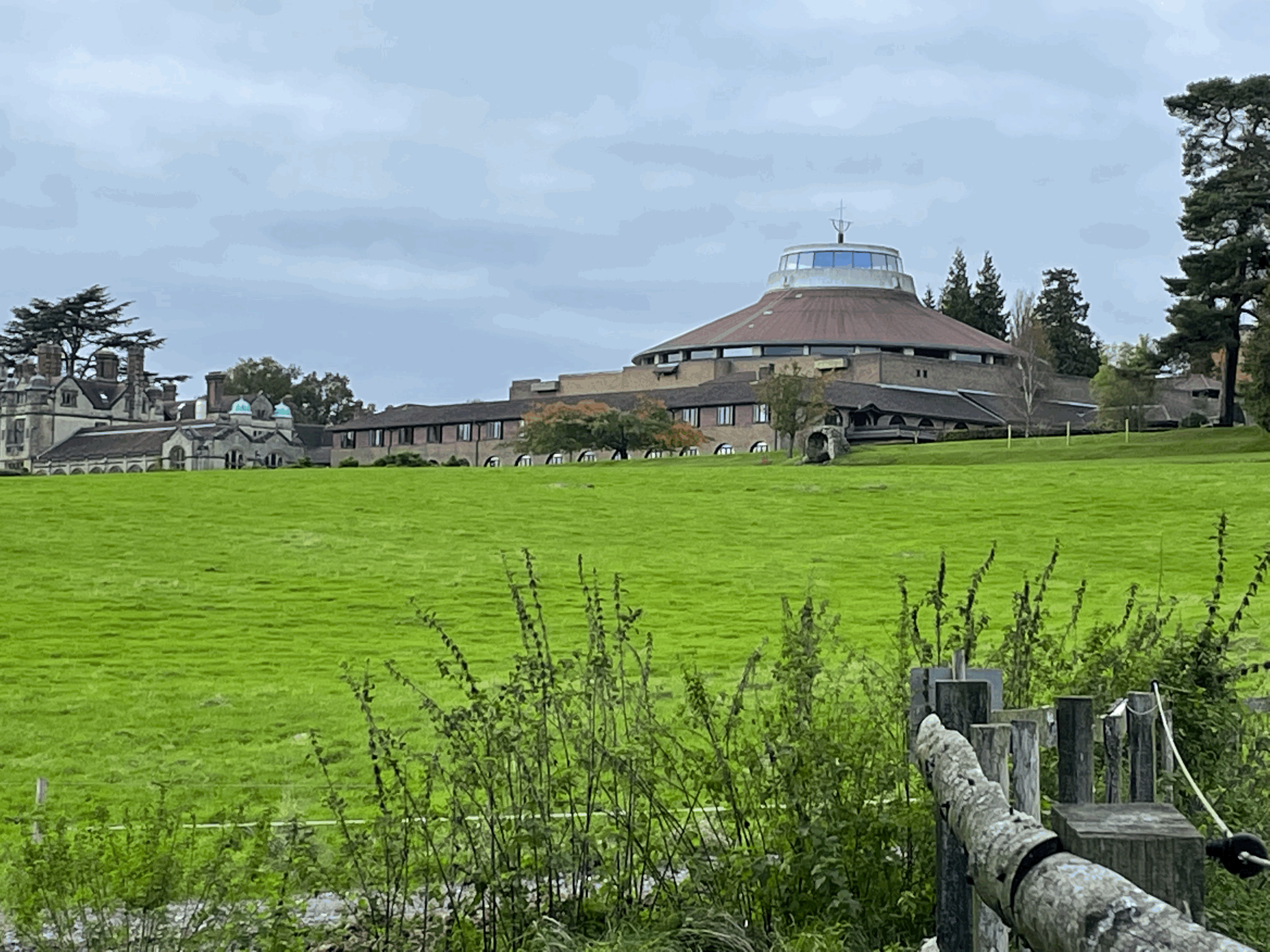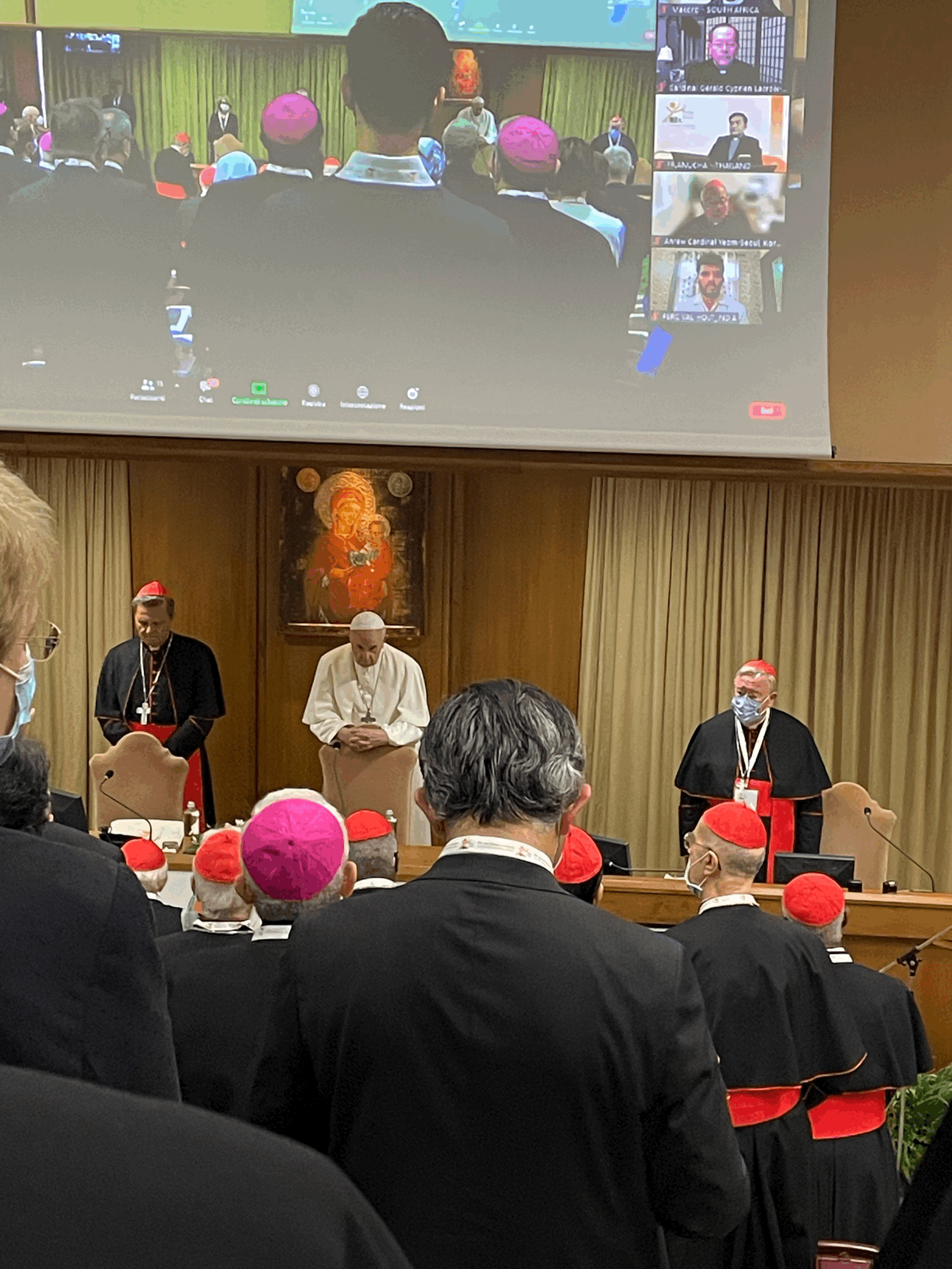
Blog

El sínodo, ¿cambiará la Iglesia?
Una charla sobre la sinodalidad, por Zoom, a invitación de la Diócesis de San Isidro, Argentina. https://www.youtube.com/watch?v=IfSnAINBeFs

‘The Hour of the People: Pope Francis and the post-Covid moment’
A lecture I was invited to give by Zoom to the Archdiocese of Boston’s Social Justice Convocation on November 13, 2021. I was given a warm welcome by Cardinal Sean O’Malley and Fr Bryan Hehir gave a thoughtful response. At the heart of the talk is what I describe as a shift in Francis’s reading of the signs of the times following the outbreak of the pandemic. From a sombre view of the direction of history prior to March 2020, the Pope began to discern a new hope in what he saw as an awakening “from below” of fraternity and solidarity in the world. I see Let Us Dream, his address to the popular movements and his calling of the global synod as signs of what I call “the hour of the people”, and spell out some of the implications for the Church’s pastoral ministry.

Austen Ivereigh: Synodality a 'new future' for the Church
A write-up in the newspaper of the Catholic archdiocese of Melbourne, Australia, following two talks I gave to the clergy and staff of the archdiocese, at the invitation of Archbishop Peter Comensoli.

We have a dream for the planet
As part of a series of Autumn lectures inspired by Pope Francis’s Let Us Dream, the great London church of St Martin-in-the-Fields in Trafalgar Square invited me to speak on the topic of “Our dream for the planet” on October 25th. The other panelists were Bishop Nicholas Holtam, until recently the Church of England’s lead bishop on the environment and Dr Emily Grossman, a climate scientist with Extinction Rebellion. Watch it here. Or read on for the text of my address.

Pope Francis tells a new story
In this cover article for The Tablet (6 November 2021) I describe how Pope Francis’s groundbreaking 2015 encyclical Laudato Si’ allowed humanity to re-imagine their place in creation, beyond anthropocentrism yet with a vital mission to play as co-creators with God, endowed with a special responsibility to care for the earth. I speculate that Erich Pryzwara SJ and his formidable 1932 work Analogia Entis may have helped Francis perform this shift.

The synod on synodality: why it matters
My first “in-person” talk in over a year was at the parish of the Benedictine abbey of Worth in West Sussex, where I gave some reflections on the global synod process after being involved in its launch in Rome.

Speak Boldly, Listen Carefully: Inside the synod
In Rome for the opening of the global "synod on synodality" on October 9-10, I was fortunate to be in the synod hall for the addresses — including Pope Francis’s — and attended some of the commissions’ meetings. In this substantial article for Commonweal, I take a wide-angled view of the process as a bid by Pope Francis to re-infuse the diocesan Church with "synodality" as best preserved in the religious orders. READ HERE.

Pope Francis was right to call out the attacks from EWTN (and to use the ‘d’ word)
While in Slovakia recently, Francis told the Jesuits that “a large Catholic television channel” had no hesitation in “continually speaking ill of the pope”, and that its attacks were the “work of the devil”. An editor of America magazine, J.D. Long-García, took issue with Francis, claiming his was an attempt to silence criticism. My response, also at America, argues it was no such thing, but alerting the People of God to the action of the diabolos — as popes should.

The Spirit in the Assembly
In this article for Commonweal, I write about the most far-reaching event in the Catholic Church in my lifetime, which officially gets its start next month (October 2021). It is Pope Francis’s boldest move yet, potentially the most transformative moment in Catholicism since the Second Vatican Council. The two-year “synod on synodality,” launched in Rome on October 9 and in dioceses worldwide a week later, is set to mark Christianity forever. So why do so few appear to have noticed?